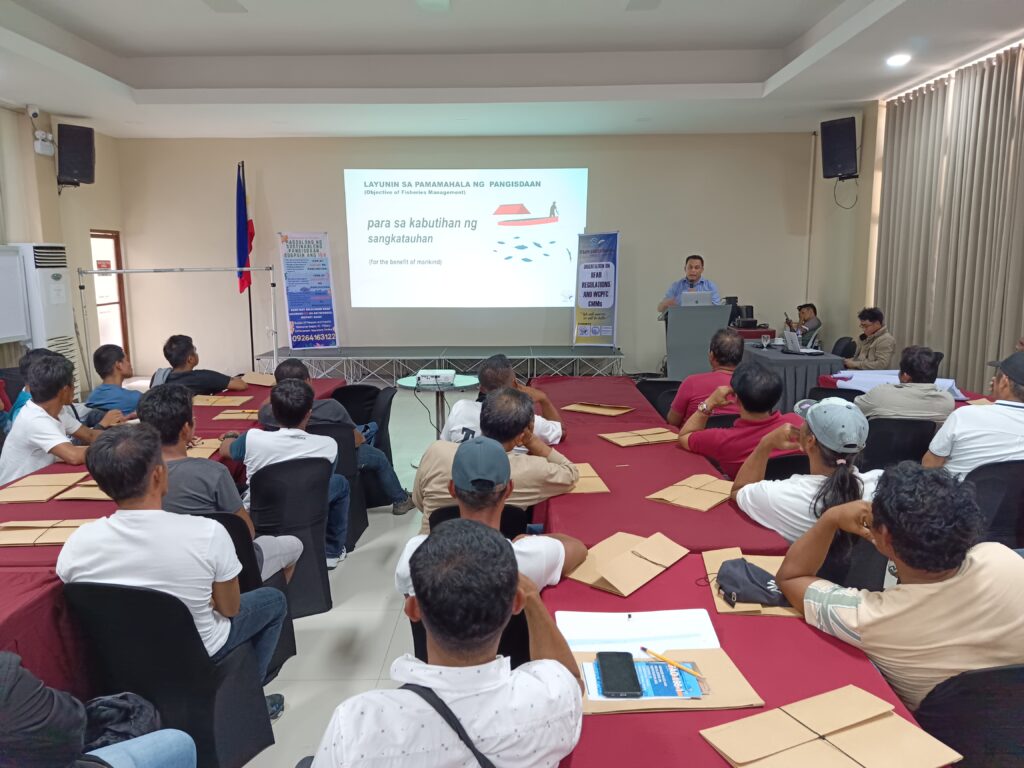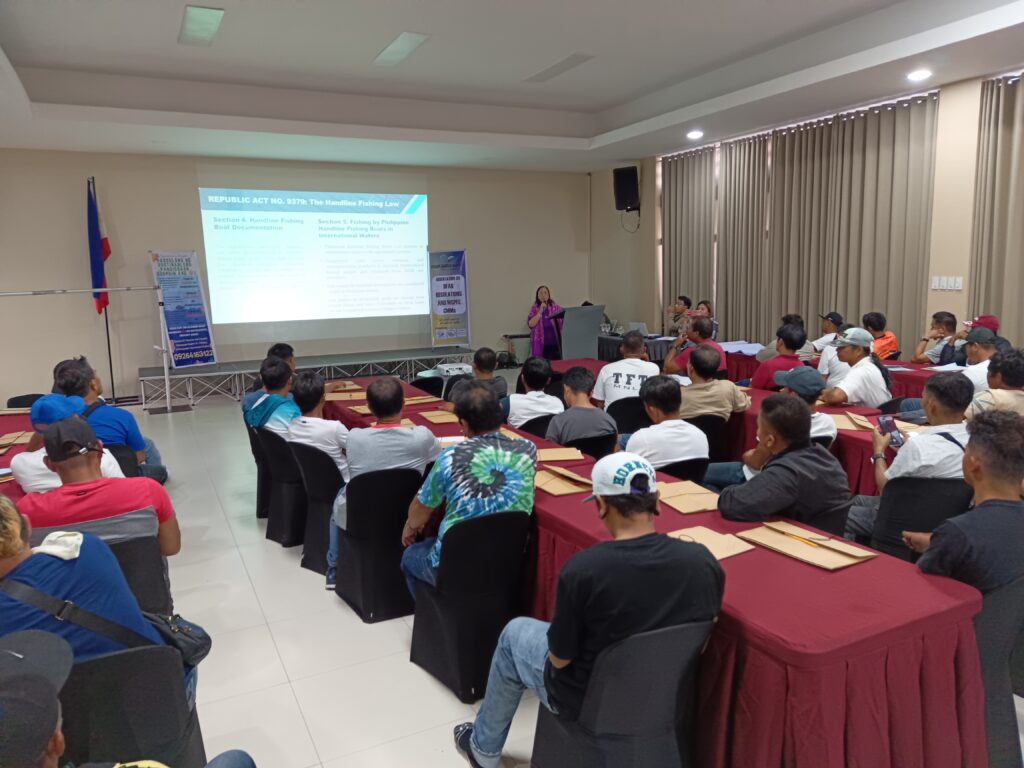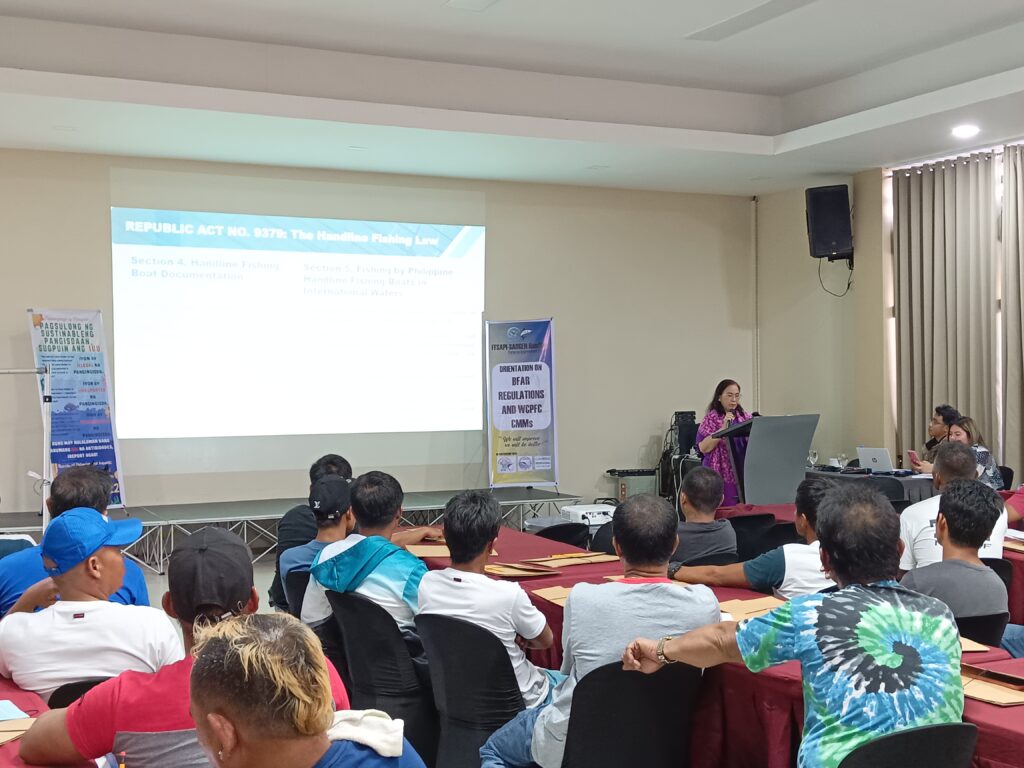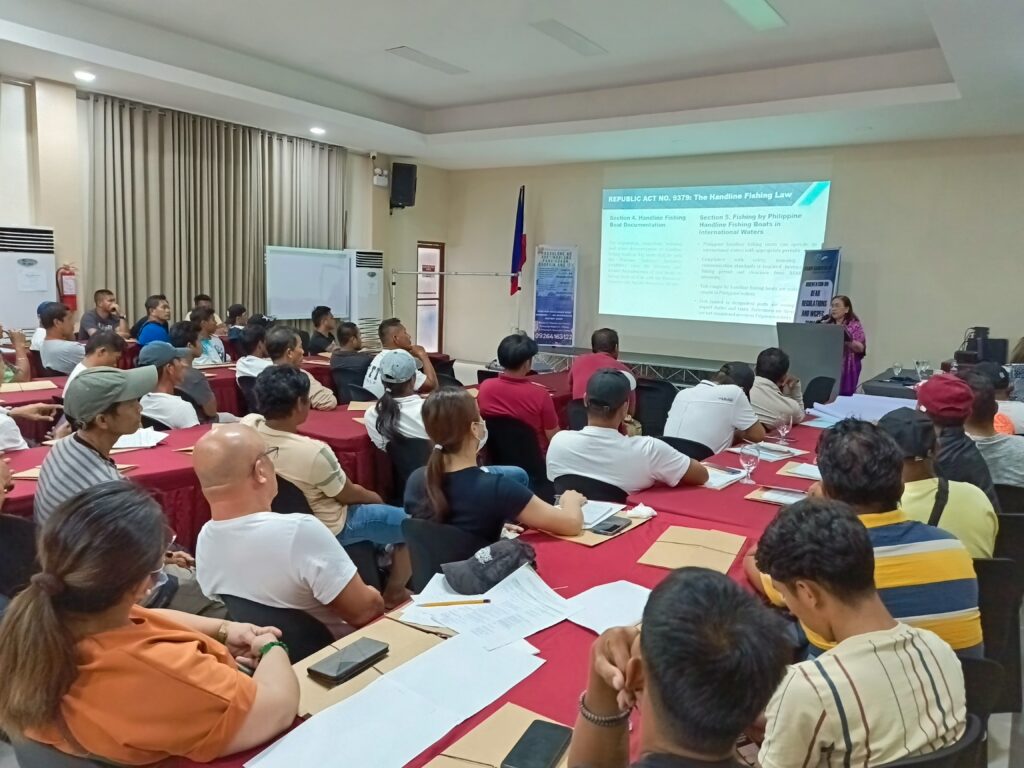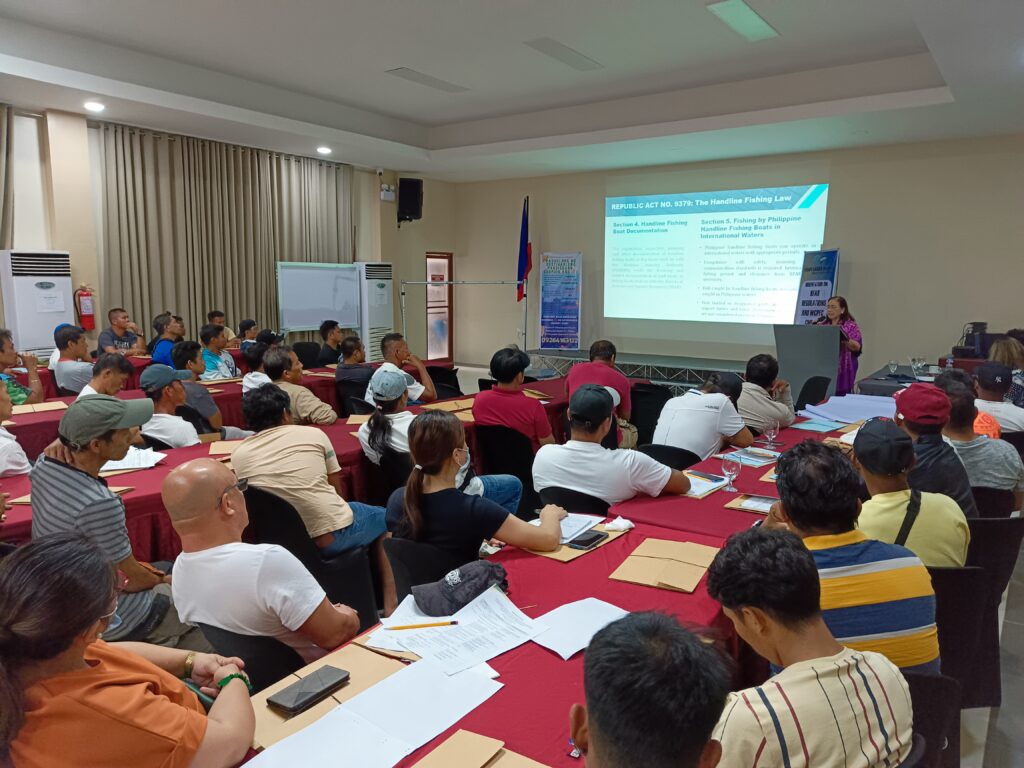The Philippines has a great deal of potential for a flourishing fisheries industry because of its long coastline and wealth of marine resources. But to guarantee these resources’ long-term viability, a thorough and efficient regulatory structure is needed. This is where Fisheries Administrative Orders (FAOs) play a pivotal role in guiding the path towards sustainable fisheries in the Philippines.
The Bureau of Fisheries and Aquatic Resources (BFAR) in partnership with the SOCSKSARGEN Federation of Fishing and Allied Industries, Inc. (SFFAII), facilitated a training to enlighten the Commercial and Municipal Tuna Handliners on November 15, 2023 at London Beach Resort and Hotels.
Dr. Alma C. Dickson, the Fishing Technology and Management Consultant of BFAR-CFD discussed the Handline Law, National Tuna Fish Aggregating Device or FAD Management Policy, and the Implementing Guidelines on Group Handline Fishing Operations in High Seas of the WCPFC Convention area while Mr. Peter Erick Cadapan discussed the General Principles in Sustainable Fisheries Management. The said training aims to educate the Fishermen about the Relevant Fishery Laws, Rules and Regulations.
Dr. Dickson emphasized the importance of Handline Fishing boat registration to secure permits and clearances and explained that Philippine handline fishing boats can operate in international waters only with appropriate permits and that Compliance with safety, manning, and communication standards is required.
Moreover, Dr. Dickson discussed about the implementing rules on the construction of a handline fishing boat and the objectives of the National Tuna Fish Aggregating Device or FAD Management Policy. She said that FAD policy aims to reduce catch of juvenile yellowfin and bigeye tuna and to ensure the sustainability of tuna population.
FAOs, according to Dr. Dickson, promote sustainable resource utilization by regulating fishing practices, protecting marine habitats, and promoting responsible aquaculture practices. These measures contribute to the long-term health of the country’s fisheries and ensure their continued productivity for future generations.
As a finale, Dr. Dickson reminded the Commercial Tuna Handliners that violating fishery laws can result in fines, penalties, or even legal action and that educating them about these laws helps them avoid unintentional violations and the associated consequences and it also fosters a sense of responsibility and accountability within the fishing community.

